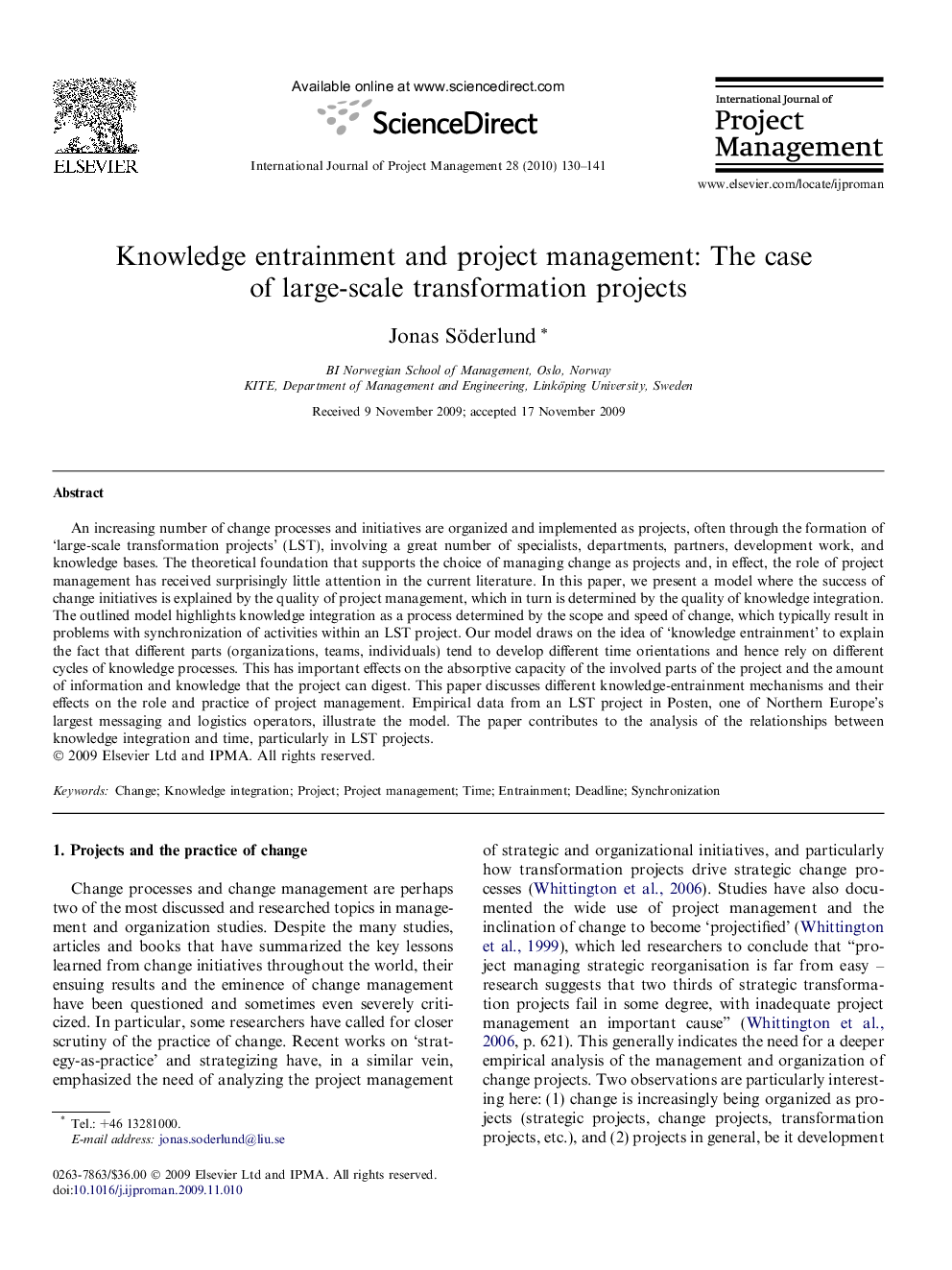| Article ID | Journal | Published Year | Pages | File Type |
|---|---|---|---|---|
| 276024 | International Journal of Project Management | 2010 | 12 Pages |
Abstract
An increasing number of change processes and initiatives are organized and implemented as projects, often through the formation of ‘large-scale transformation projects’ (LST), involving a great number of specialists, departments, partners, development work, and knowledge bases. The theoretical foundation that supports the choice of managing change as projects and, in effect, the role of project management has received surprisingly little attention in the current literature. In this paper, we present a model where the success of change initiatives is explained by the quality of project management, which in turn is determined by the quality of knowledge integration. The outlined model highlights knowledge integration as a process determined by the scope and speed of change, which typically result in problems with synchronization of activities within an LST project. Our model draws on the idea of ‘knowledge entrainment’ to explain the fact that different parts (organizations, teams, individuals) tend to develop different time orientations and hence rely on different cycles of knowledge processes. This has important effects on the absorptive capacity of the involved parts of the project and the amount of information and knowledge that the project can digest. This paper discusses different knowledge-entrainment mechanisms and their effects on the role and practice of project management. Empirical data from an LST project in Posten, one of Northern Europe’s largest messaging and logistics operators, illustrate the model. The paper contributes to the analysis of the relationships between knowledge integration and time, particularly in LST projects.
Related Topics
Physical Sciences and Engineering
Engineering
Civil and Structural Engineering
Authors
Jonas Söderlund,
